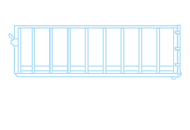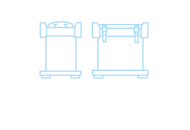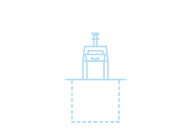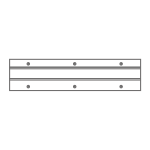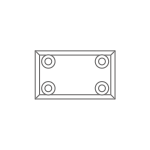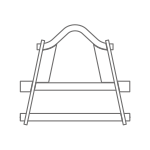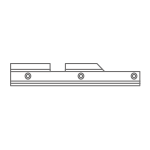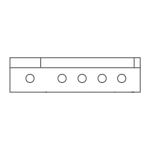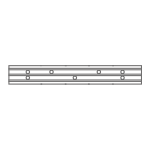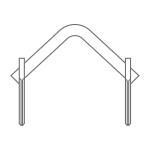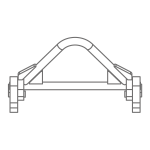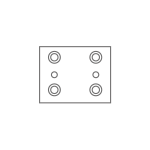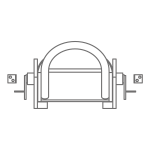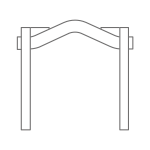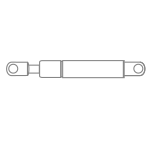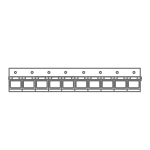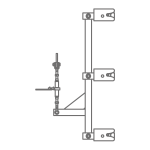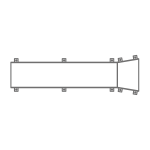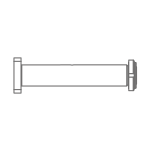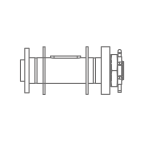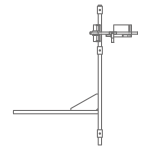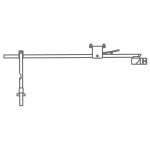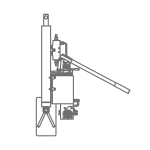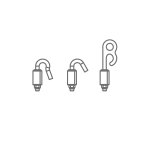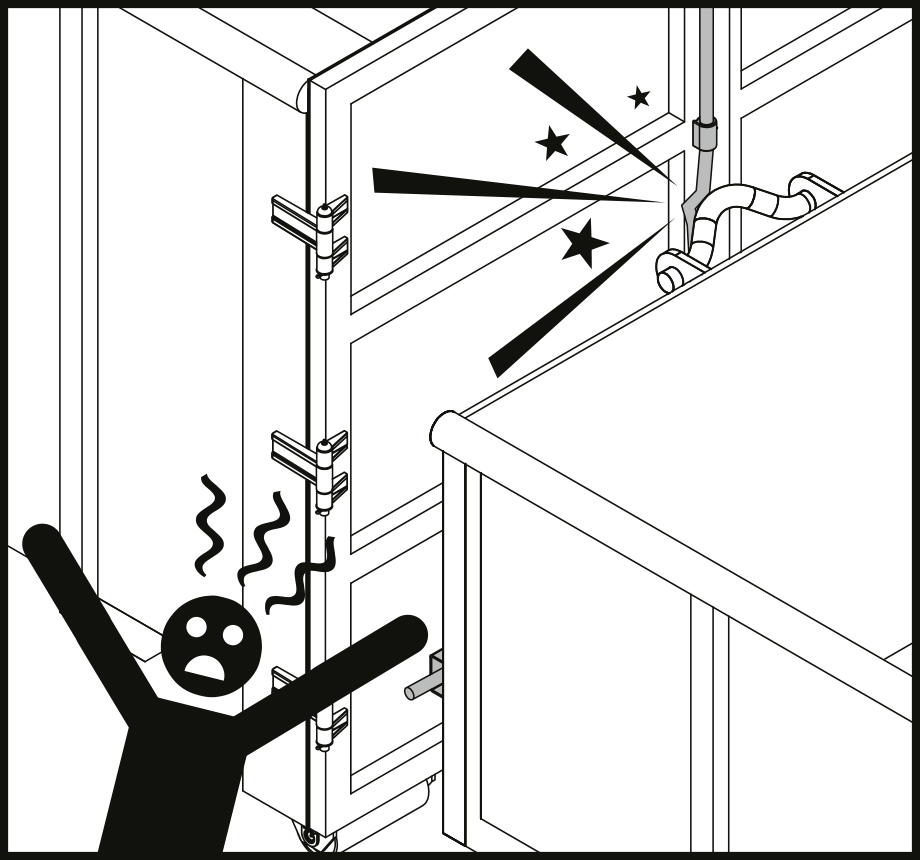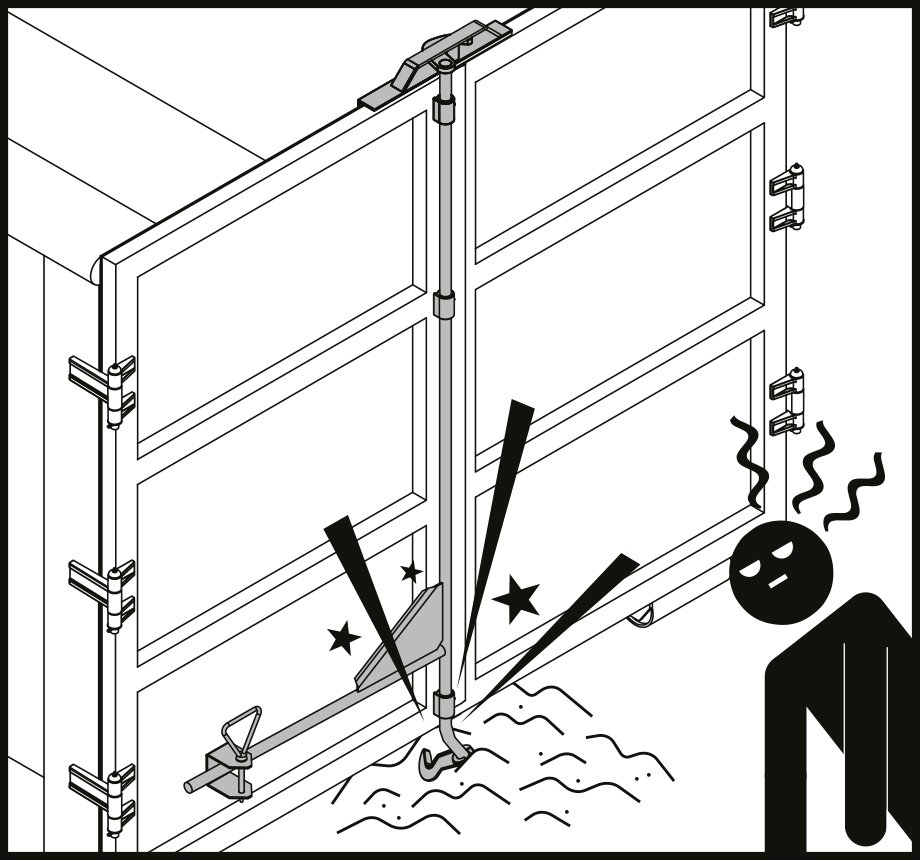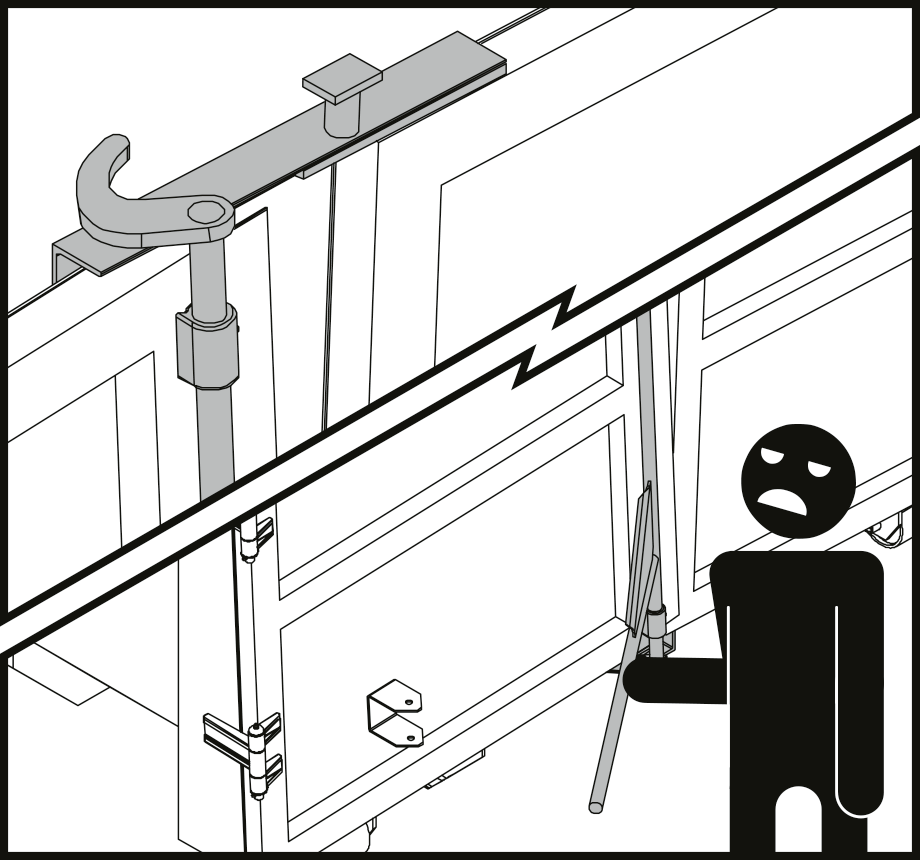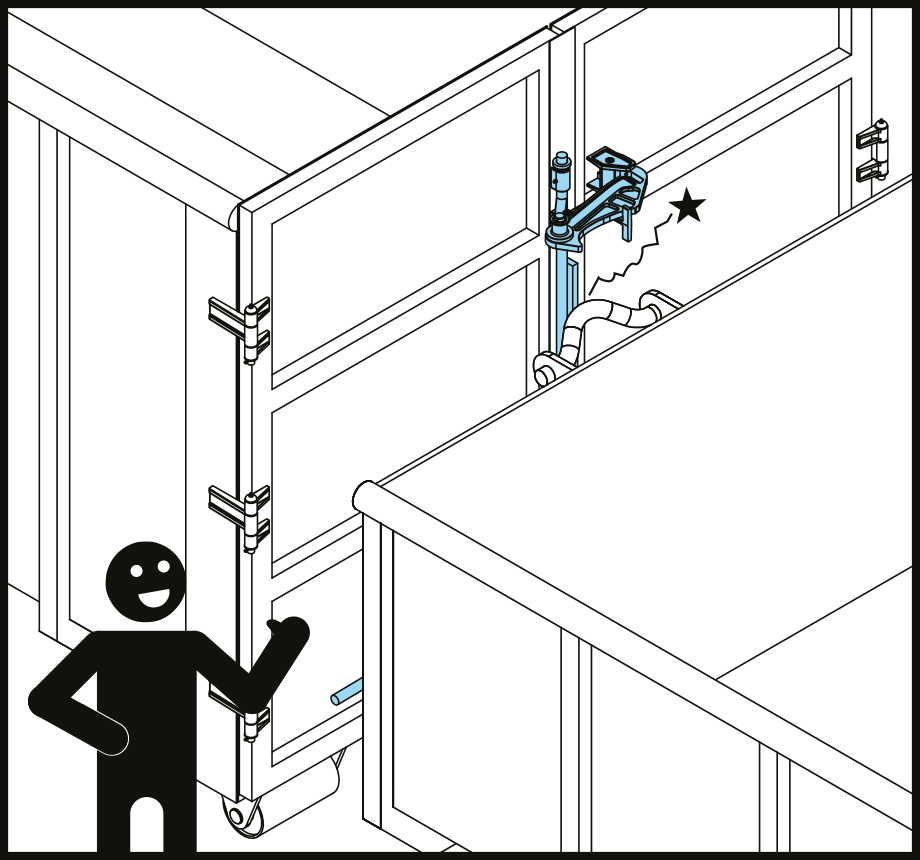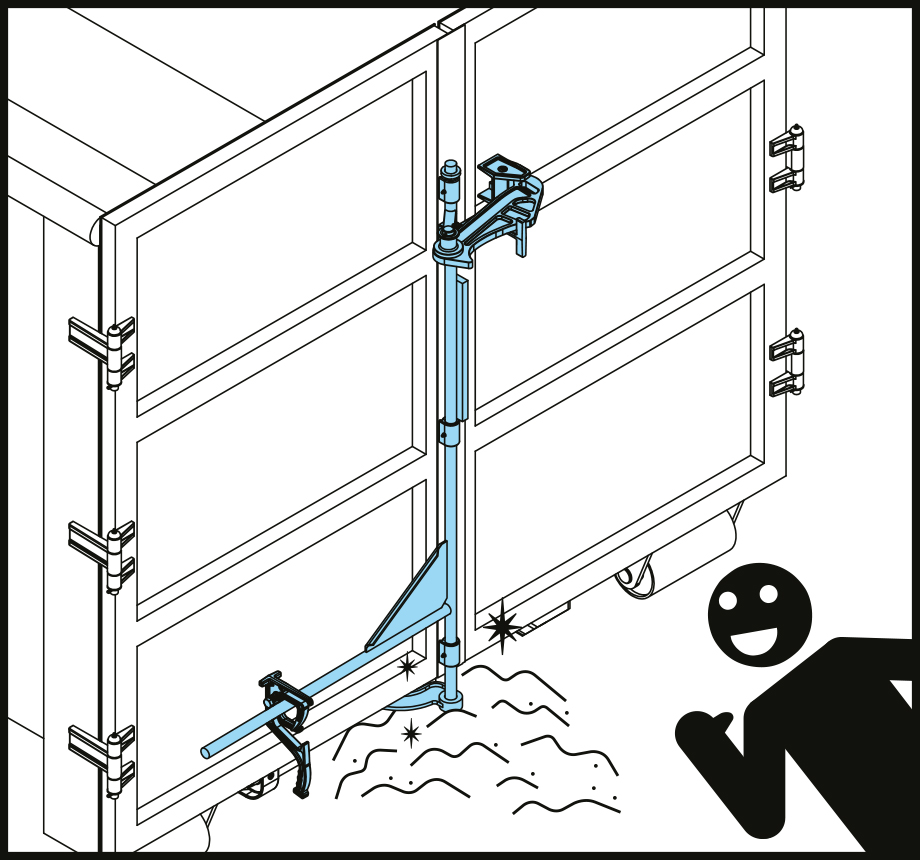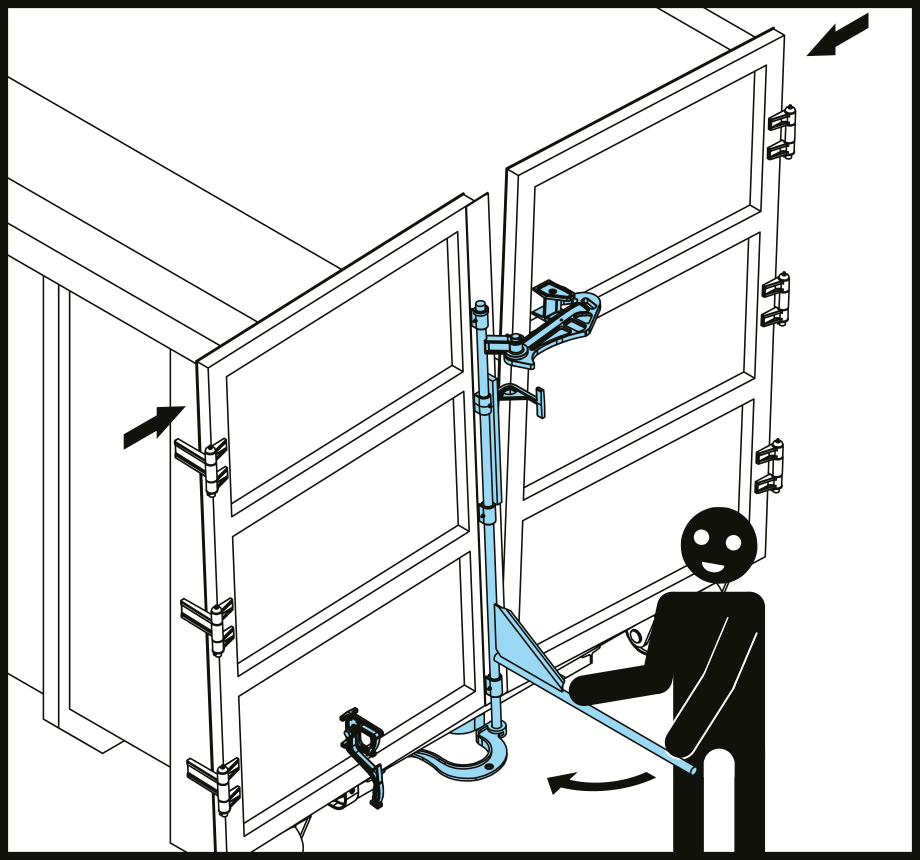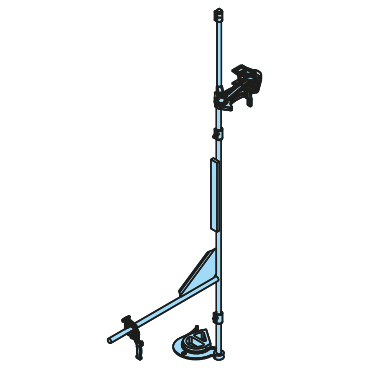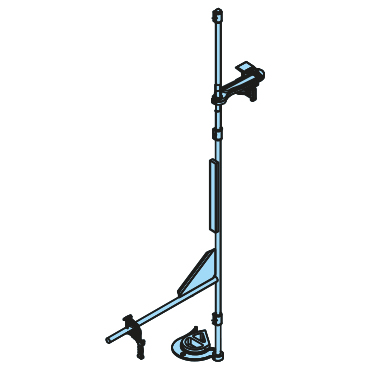 The problem with conventional door locks
The problem with conventional door locks
· the upper door lock hooks and holders are very quickly damaged during the loading process
· if the doors and sidewalls are bent, the hook no longer opens — the container must be taken to a workshop
· lower door lock hooks are often damaged during roll-off, as they are not protected from obstacles
· if the load is not secured, there is a risk that the load will slide against the door and push it open
· door lock shafts are often bent by the lifting bars of other containers placed on the site
· if the doors and sidewalls are bent, the hook no longer opens — the container must be taken to a workshop
· lower door lock hooks are often damaged during roll-off, as they are not protected from obstacles
· if the load is not secured, there is a risk that the load will slide against the door and push it open
· door lock shafts are often bent by the lifting bars of other containers placed on the site
 The solution: REWALD's over centre door locking system
The solution: REWALD's over centre door locking system
· the upper door locking hook is located outside the loading danger zone
· in case of severely bent doors and walls the hook is simply released from the holder with a lever
· the over centre door lock pulls bent doors back together at the top and closes securely
· the lower door locking hook provides additional security through extra strength and form-fit connectivity
· the guard plate protects the door lock shaft from collision with lifting bars of other containers
· in case of severely bent doors and walls the hook is simply released from the holder with a lever
· the over centre door lock pulls bent doors back together at the top and closes securely
· the lower door locking hook provides additional security through extra strength and form-fit connectivity
· the guard plate protects the door lock shaft from collision with lifting bars of other containers

